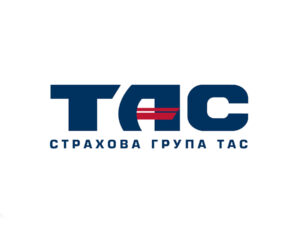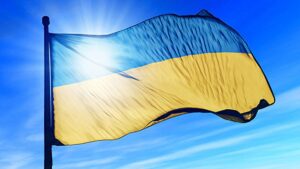
Metinvest Reduces Debt by $620 Million and Increases EBITDA in 2024Metinvest B.V. (Netherlands), the parent company of Metinvest Mining and Metallurgical Group, has reduced its debt by more than $620 million since 2022.
As Yuriy Ryzhenkov, CEO of the company, noted in the annual report, despite the anxiety and uncertainty of the war, there were achievements over the past year that demonstrate the group’s resilience and ability to develop in the face of challenges.
“Metinvest’s global team has shown extraordinary strength and unity. We have maintained our status as a leading exporter and pillar of Ukraine, and we remain among the largest donors to the country’s defense efforts.
In 2024, Metinvest felt the positive impact of operational changes made possible by the opening of Black Sea navigation. This significant event reinforced our results for the year. It is important that we have restored our operational efficiency,” stated the top manager.
According to him, when a full-scale war broke out in 2022, the company made efforts to rebuild its supply chains and business processes. By 2023, the company managed to adapt to the new realities, and in 2024, significant improvements in operating performance were achieved, amounting to more than $200 million.
“Even in wartime, Metinvest continued to reduce its debt. Despite all the uncertainty, the Group has repaid more than $620 million of debt since the start of the full-scale invasion, demonstrating our strong commitment to our partners. Together with our partners, we have also made progress on the Adria project, our plan to build a green steel plant in Piombino, Italy. It is poised to deliver significant benefits to all stakeholders by prioritizing innovative technologies and sustainable business practices,” Ryzhenkov emphasized.
At the same time, the CEO acknowledged that despite these very real achievements, the company also faced numerous challenges, including electricity shortages, underutilization of some production assets and margin pressure in the second half of the year. In addition, when the security situation deteriorated in late 2024, Metinvest decided to suspend production at Pokrovskugol.
“Like the rest of the world, we are closely following the latest news, including expectations about the potential for a ceasefire. No matter what happens in the coming weeks and months, we will maintain our unwavering faith in the Ukrainian Armed Forces and remain committed to Ukraine’s recovery. We honor our defense employees, whose number has grown to more than 8,000, including those with joint ventures,” the CEO wrote in his commentary.
As of December 31, 2024, total debt amounted to $1.705 billion (down 14% from $1.981 billion in 2023), mainly as a result of a strong campaign to reduce bond debt and the use of trade finance. Net debt to EBITDA decreased to 1.1x (down 0.5x yoy) and amounted to $1.048bn (down 21%, in 2023 – $1.335bn).
As reported, Metinvest’s consolidated net loss in 2024 increased sixfold compared to 2023 – to $1.152 billion from $194 million, revenue increased slightly to $8.050 billion from $7.397 billion, and EBITDA increased by 12% to $957 million from $861 million. At the same time, the steel sector’s revenue amounted to $4.824 billion ($4.846 billion in 2023) and the mining segment’s revenue amounted to $3.226 billion ($2.551 billion).
Adjusted EBITDA of the group’s steel division was $289 million ($159 million) and mining segment $768 million ($770 million). Metinvest’s operating loss in 2024 amounted to $938 million compared to $445 million in operating profit in 2023. In addition, free cash and cash equivalents increased slightly to $657 million from $646 million at the end of 2023.
“Metinvest is a vertically integrated group of steel and mining companies. Its businesses are located in Ukraine, in Donetsk, Luhansk, Zaporizhzhia and Dnipro regions, as well as in Europe. The main shareholders of the holding are SCM Group (71.24%) and Smart Holding (23.76%), which jointly manage it. Metinvest Holding LLC is the management company of Metinvest Group.

In January-February 2025, TAS Insurance Group (Kyiv) paid UAH 391.14 million under the concluded insurance contracts, which is 26.7% more than the amount of the company’s indemnities for the same period in 2024.
According to the insurer’s website, 27.6% of the total volume of payments was accounted for by hull insurance (UAH 108.1 million), which is 22.3% more than in January of the previous year, 31.5% or UAH 123.1 million (+10.8%) for MTPL, and 22.8% or UAH 89.2 million (+71.7%) for Green Card.
The share of VHI in the company’s claims portfolio in December amounted to 15.6%, or UAH 61.08 million (+28.1%).
The company paid UAH 9.7 million under other insurance contracts.
TAS Insurance Group was registered in 1998. It is a universal company offering more than 80 types of insurance products in various types of voluntary and compulsory insurance. It has an extensive regional network: 28 regional directorates and branches and 450 sales offices throughout Ukraine.

Corn became the most exported commodity in January-February 2025, with a share of 26.5% in agricultural exports and 16% of Ukraine’s total exports, the press service of the State Customs Service (SCS) reported on Telegram.
The agency noted that in January-February 2025, 4.7 million tons of corn were supplied to foreign markets, which amounted to $982 million in monetary terms.
The top five importers of Ukrainian corn are Spain – 933 thsd tonnes, Italy – 725 thsd tonnes, Turkey – 639 thsd tonnes, Egypt – 593 thsd tonnes and the Netherlands – 514 thsd tonnes.

In New Delhi, the Ministers of Foreign Affairs of Ukraine Andriy Sybiga and India Subramanian Jaishankar officially inaugurated the Consulate General of Ukraine in Mumbai.
“Even during the war, we are expanding Ukraine’s diplomatic presence in India. This demonstrates our readiness to increase bilateral trade, cooperation and dialogue,” the press service of the Ukrainian Foreign Ministry quoted Sibiga as saying in a telegram on Tuesday.
According to the minister, India is demonstrating impressive technological progress. “Taking into account Ukrainian innovations and wartime know-how, technological cooperation between our countries has great potential,” Sibiga emphasized.
Earlier, the Ukrainian Foreign Ministry said that Sibiga is on a working visit to India from March 17 to 19.

Ukrainian one-dollar store chain Aurora has opened 33 stores in the Romanian market in the first year since entering the market and generated about EUR10 million in revenue, said Taras Panasenko, CEO of the chain.
“For this year, we have a plan of EUR40 million in revenue in Romania, which means to grow four times,” he said at the Exporters Summit organized by Forbes Ukraine in Kyiv.
According to anInterfax-Ukraine correspondent, Panasenko added that the number of checks has reached 1 million, and 98% of buyers are local.
As reported, Aurora invested UAH 2.5 billion in the development of its network in Ukraine in 2024. Last year, the chain’s revenue increased by 42.5% to UAH 38.5 billion (excluding VAT).
“Aurora was founded in 2011 by Lev Zhidenko, Taras Panasenko and Lesya Klymenko. At the end of 2024, the chain had more than 1600 stores in Ukraine and 30 in Romania. The company employs about 14 thousand people. The retail chain is headquartered in Poltava.
According to Forbes, citing Panasenko, Aurora plans to open 340-350 new stores in Ukraine in 2025.
“We want to go public, but we are waiting for the right time for retail companies. Now, for example, Polish Żabka has launched an IPO, and it was successful. However, the main factor that will have a positive impact on our IPO is the end of martial law in Ukraine,” the CEO also said.
According to him, the company does not plan to enter new markets yet, but will focus on the development of Romanian stores. “But we are looking at Uzbekistan, Moldova, Bulgaria,” Forbes quoted Panasenko as saying.

The volume of capital investments in Ukraine in 2024 increased by 35.1% compared to 2023 and amounted to UAH 534.4 billion, the State Statistics Service reported.
Last year, the main source of financing for capital investments remained the own funds of enterprises and organizations, which accounted for 71% of the total.
The agency specifies that the share of the state budget amounted to 10.9%, the share of household funds for housing construction – 6.1%, local budgets – 5.7%, bank and other debt financing – 3.8%, and funds from foreign investors – only 0.1%.
A significant share of capital investments was made in machinery and equipment – 32.8%, engineering structures – 27.2%, and vehicles – 10.1% of all investments.
According to the State Statistics Service, in 2024, capital investments increased the most in the field of transport, warehousing, postal and courier activities – by 77.5%, to UAH 46.8 billion, and in the field of law and accounting – by 73.2%, to UAH 8.2 billion.
In wholesale and retail trade, capital investment increased by 68.2% to UAH 44.2 billion, in information and telecommunications by 67% to UAH 25.8 billion, in education by 63.4% to UAH 2.4 billion, and in professional, scientific and technical activities by 62.4% to UAH 11.4 billion.
The agency points out that last year’s growth in real estate transactions was 57.6% to UAH 9.3 billion, in advertising – 45% to UAH 0.3 billion, in research and development – 39.8%, to UAH 2.9 billion, construction – 36.1% to UAH 41.7 billion, agriculture – 35.5% to UAH 42.9 billion, public administration and defense – 31.4% to UAH 61 billion, and industry – by 23.1% to UAH 209.1 billion,
In addition, according to the State Statistics Service, there was a slight increase in financial and insurance activities – by 14.1%, to UAH 16.5 billion, publishing, radio and television broadcasting – by 19.7%, to UAH 1.2 billion, and healthcare – by 6.5%, to UAH 13.5 billion.
According to the statistics agency, capital investments in Ukraine in 2023 increased by 41.4% to UAH 395.5 billion.